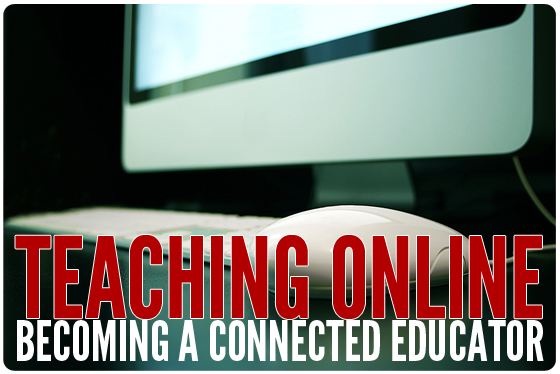 Sheryl Nussbaum-Beach is co-founder and CEO of Powerful Learning Practice LLC. In more than a decade as an online educator, Sheryl has led over 2000 webinars and e-course sessions involving more than 10,000 adult learners. A former teacher of the year in the Virginia Beach VA public schools, Sheryl has also been a school and district technology coach, an independent school principal, and a university instructor. She is co-author of a new book. The Connected Educator: Learning and Leading in the Digital Age (Solution Tree, 2012).
Sheryl Nussbaum-Beach is co-founder and CEO of Powerful Learning Practice LLC. In more than a decade as an online educator, Sheryl has led over 2000 webinars and e-course sessions involving more than 10,000 adult learners. A former teacher of the year in the Virginia Beach VA public schools, Sheryl has also been a school and district technology coach, an independent school principal, and a university instructor. She is co-author of a new book. The Connected Educator: Learning and Leading in the Digital Age (Solution Tree, 2012).
In this interview, Sheryl describes her upcoming e-course “Teaching Online: Becoming a Connected Educator” and highlights some of the virtual teaching secrets she’ll share. The 10-week course begins February 6th (and again on May 7th). You can find out more details and register here. (Graduate credit is also available.)
______________
1. Give us the skinny on Teaching Online: Becoming a Connected Educator. What’s great about this e-course?
Teaching Online: Becoming a Connected Educator is about helping people interested in teaching an online class. The teaching might be associated with a pre-service or graduate level college program for educators, or in a college or K-12 virtual school setting with students.
Also, K12 teachers who are re-envisioning their own physical classrooms as blended learning environments would find this e-course very helpful. Blended environments, as we know, combine face to face instruction with online instruction, and they can help students master the core curriculum while also addressing higher level skills like analysis, evaluation and creativity.
The beauty of this course is that it’s going to help participants really understand the power of curriculum-building in a technology-rich environment. We’re not just talking about digitizing a traditional lesson plan. Instead, we’ll be looking at how you, as an online instructor, use the power of technology to create learning activities, design your syllabus, and craft ongoing assessments that really unleash the learning of your students. Excellent virtual teaching is not just jumping online and talking — this course shows you how to use a variety of technologies to add real depth and creativity to your instruction.
2. Why is a blended environment beneficial to the learner?
For teachers, their own blended learning experiences can help them gain insights they can carry back to develop more connected classrooms. Much of what I try to model in this course has applications in the physical as well as the virtual classroom.
For students, as 21st century digital citizens they need to become proficient learners who can easily move from physical to virtual learning environments and back again. That ability should really become “business as usual.” Blended learning also creates many more opportunities for students to become producers (not just consumers) of information in the real world — and to have daily access to digital tools that let them master the content through their own preferred learning styles. It helps shift the ownership of learning from the instructor to the student.
3. What do you mean by that?
Teaching in an online setting allows you to leverage the potential of technology to facilitate self-directed learning. So the teacher really becomes a very effective facilitator of the learning rather than the knowledge-giver. In effect, students shift from passive to active learners. This is the vision of online learning embedded in our PLP e-course and all the work we do.
4. Who should take this course?
College professors, adjunct instructors, and K12 teachers who want to shift to teaching online — educators who want to create blended learning environments for their students — administrators who see their role as instructional leaders and want to promote blended learning in their schools and systems. ALSO: Consultants who are teaching online and want to boost their effectiveness and creativity will definitely benefit from this course.
5. Once people complete this e-course, what new opportunities might result from gaining these skills?
While this course doesn’t have a formal certification, Powerful Learning Practice has a reputation for excellence. The feedback from people has been that the things they’ve learned here were immediately transferable to teaching online courses or improving the courses they’re already teaching. They’ve gained the ability to create blended learning opportunities in their schools and classrooms. And consultants tell us they’ve seen higher levels of engagement among participants in their own webinars and e-courses, which can increase word-of-mouth and new business.
6. What will participants learn and how much fun will they have? What’s your e-course teaching style?
My teaching style is all about enabling participants to empower themselves. The course starts out where I’m the main facilitator and evolves into an environment where we all facilitate and lead the course. Participants will learn to teach online by actually teaching online within the context of the course.
My teaching style is grounded in social learning so I very quickly get everyone involved. We will be co-creators, co-collaborators, co-learners, and co-leaders. In terms of what you’ll learn, we’ll do everything from looking at principles, best practices and research to the more pragmatic elements of planning, syllabus design, questioning techniques, and general pedagogical issues. We’ll also delve into some very 21st century-specific things, such as managing an online learning community, crowd sourcing, building authentic assessment into digital learning experiences, using emerging technologies, and more.
7. What’s next for you as an online teacher?
Here’s something I’ve been working on recently: If we think about teachers’ 21st century learning needs holistically, how might PLP offer an eclectic group of courses (some self-paced and DIY, and some instructor-led for graduate credit) that would deal with more than just the cognitive knowledge an educator needs to have.
Wouldn’t it be cool if we offered courses in quick meal preparation for busy teachers who come home and have to fix dinner under a time crunch? Or time management and fitness tips for busy educators? Or how about career planning and life coaching experiences? Teaching isn’t just a job — it’s a life. So I’ve been thinking in this direction. If anyone reads this and gets excited about the idea, get in touch!
Join us for this powerful eCourse!
Find out more and register now! Course starts February 6.
Latest posts by Powerful Learning Practice (see all)
- Hurry, you do not want to miss out on this… - November 3, 2020
- Resist the Urge to Quit Prematurely - October 26, 2020
- Let’s Move Past Feeling Disconnected from Your Students. Words Matter - October 24, 2020


